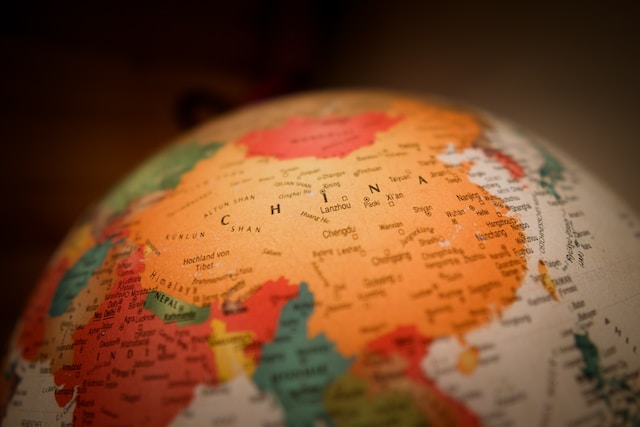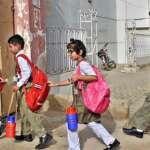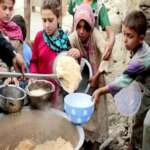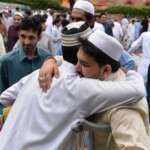A Closer Look at Asia
Asia Flag

Asia Capital Name
Some of the capitals of Asia countries include
- Beijing, China
- Tokyo, Japan
- New Delhi, India
- Jakarta, Indonesia
- Seoul, South Korea
- Bangkok, Thailand
- Manila, Philippines
- Doha, Qatar
- Riyadh, Saudi Arabia
- Kuala Lumpur, Malaysia
Asia Neighbours
 Afghanistan
Afghanistan Armenia
Armenia Azerbaijan
Azerbaijan Bangladesh
Bangladesh Bhutan
Bhutan Brunei Darussalam
Brunei Darussalam Cambodia
Cambodia China
China Georgia
Georgia India
India Indonesia
Indonesia Japan
Japan Kazakhstan
Kazakhstan Kyrgyzstan
Kyrgyzstan Laos
Laos Malaysia
Malaysia Maldives
Maldives Mongolia
Mongolia Myanmar
Myanmar Nepal
Nepal North Korea
North Korea Pakistan
Pakistan Philippines
Philippines Republic of China (Taiwan)
Republic of China (Taiwan) Singapore
Singapore South Korea
South Korea Sri Lanka
Sri Lanka Tajikistan
Tajikistan Thailand
Thailand Timor Leste
Timor Leste Turkmenistan
Turkmenistan Uzbekistan
Uzbekistan Vietnam
Vietnam
Exploring Asia
Discover more details and learn about the upcoming festivities associated with Asian Holidays
Origin of Asia
Asia is the largest continent on Earth, covering more than 30% of the world's land area. Its land area spans over 17,139,446 square miles, stretching from the shorelines of the Mediterranean Sea in the west to the easternmost tip of the Russian Far East. The continent is home to diverse landscapes, from vast steppes and tropical rainforests to mountain ranges, deserts, and archipelagos. It also spans some of the highest points on Earth, including Mount Everest in the Himalayan Mountains and Mount Fuji in Japan. Two of the oldest civilizations in human history, China and India, are both found in Asia. Evidence suggests that modern humans first appeared in Southeast Asia around 50,000 years ago and began to migrate outward from there. Some of this migration brought populations to the Middle East and even as far as Australia. The influence of these ancient civilizations term the region home to a rich and varied spectrum of cultures and religions, including Hinduism, Buddhism, Confucianism, Daoism, Christianity, Islam, and Judaism.Culture
Asia has an incredibly diverse culture, due to its expansive size and numerous countries. Each of Asia's countries, from India and China to Japan and Indonesia, have unique cultures as reflected in their art, music, language, food, and folklore. Chinese culture has been developing for thousands of years, and it is the source of many of the East Asian countries' cultural traits. India is also home to a variety of religions, from Hinduism and Buddhism to Islam and Sikhism. Japanese culture, meanwhile, is influenced by a mix of Chinese and Korean culture, including its traditional martialarts, the samurai way of life, and its magna carta approach to law. Indonesia shares religious influences with India, and its rich artistic heritage has been greatly shaped by Indonesian history and traditions.Sports
Sport is an integral part of Asian culture. From its ancient origins to its contemporary popularity, sports have been used to promote health, create social networks, and provide entertainment. Some of the most popular sports in Asia include cricket, football (soccer), martialarts, rugby, and badminton. Cricket is perhaps the most popular sport in India, where it is a national pastime. Football, meanwhile, is popular throughout much of Asia, and it is the most watched sport in the world. Many Asian countries are also home to their own martialarts style. Judo is a particularly popular martial art in Japan, while tae kwon do and hapkido are popular in South Korea. Badminton is also popular across East and Southeast Asia, as well as in Hong Kong, Singapore, and Malaysia.Religion
Asia is home to a variety of religions, from Hinduism and Buddhism to Christianity, Islam, and Judaism. Hinduism is the largest religion in India, and it is also popular in Nepal and Sri Lanka. Buddhism, derived from Indian roots, is particularly popular in Tibet, Mongolia, Thailand, and Japan. The Middle East is the birthplace of three major monotheistic religions: Christianity, Islam, and Judaism. Though much of East Asia is not strictly religious, many countries follow Buddhism and Confucianism.Languages
Asia is home to some of the most diverse languages on Earth. While English, French, and Spanish are among the most popular languages in the West, Asian languages are much more complex and varied. The most spoken language in Asia is Chinese, which exists in a number of dialects such as Mandarin, Cantonese, and Wu. Hindi is also popular in India, while Japanese is popular in Japan and Filipino is popular in the Philippines.Education
Education is a priority in many Asian countries, particularly in South Korea, Taiwan, Hong Kong, and Singapore. In these countries, educational systems are very competitive, and students are expected to work hard in order to keep up with their peers. In India, education has traditionally focused on the traditional subjects of mathematics, science, and literature. However, recently, vocational education has become increasingly popular, with the government providing more support to institutions that offer trade-related courses.Demographics
Asia is home to over 4.5 billion people, nearly 60% of the world's population. The continent is incredibly diverse, with over 4,000 different ethnic groups living within its borders. China, India, Indonesia, and the Philippines comprise the four largest countries by population in Asia, accounting for half of the continent's population. Other populous countries in Asia include Pakistan, Bangladesh, Japan, and Vietnam.Commerce
Asia is a major hub for global commerce. China is the largest exporter in the world, followed by India, Japan, and South Korea. Southeast Asia's economic strength is primarily based on regional trade, while the Middle East is a major center for oil and gas production. Many countries, including India and China, have opened their markets to foreign investment, resulting in a significant influx of capital from global investors.Weather
The weather in Asia varies greatly, depending on the region. Central Asia is mostly dry, with hot summers and cold winters. The Himalayan Mountains are usually covered in snow, while Central Asia's other mountain ranges have milder climates and higher levels of precipitation. Much of South Asia has a tropical savannah climate, while Southeast Asia is hot and humid all year round.Borders
Asia has numerous land borders, making it the largest continent on Earth. To the north, it is bounded by the Arctic Ocean, while its westernmost border is the Black Sea. The borders of the Indian Ocean, the Pacific Ocean, and the Mediterranean Sea form the continent's southern and eastern edges. Additionally, many of Asia's countries have boundaries with each other, such as between India and Pakistan, China and Myanmar, and Japan and North Korea.Asia Highest Point Name
The highest point in Asia is Mt. Everest, which stands at 8,848 metres (29,029 ft). It is located on the border between Nepal and China.
Asia Official Languages
The official languages of Asian countries vary widely from country to country, with some countries having more than one official language. In India, the official languages are Hindi and English. In China, Mandarin (Putonghua) is the official language, though many local dialects such as Cantonese are also spoken. In Japan, the official language is Japanese. In Thailand, the official language is Thai.In the Philippines, the official languages are Filipino and English.In Laos, the official language is Laotian.In Indonesia, the official language is Bahasa Indonesia.In South Korea, the official language is Korean.In Vietnam, the official language is Vietnamese.In Malaysia, the official language is Malay.In Nepal, the official language is Nepali.In Bangladesh, the official language is Bengali.In Myanmar (Burma), the official language is Burmese.In Cambodia, the official language is Khmer.In Singapore, the primary official languages are English, Malay, Mandarin, and Tamil.
Asia Ethnic Groups
The vast Asian continent is home to a diverse spectrum of ethnic groups, languages, religions, and cultures. In China, some of the largest ethnic groups include the Han (92%), the Zhuang, Hui, Manchu, Uyghur, Miao, Yi, Tujia, and Mongolian. In India, the major ethnic groups include Indo-Aryan, Indo-Dravidian, Mongolian, and Austro-Asiatic. In Japan, the majority ethnic group is the Yamato, although there are significant minority groups of Koreans, Ainu, and Ryukyuans. In Southeast Asia, there are many ethnic groups with a large population presence, including the Indonesian Javanese, the Malaysian Malays, and the Thai Tai people. The South Asian countries of Nepal, Bhutan, and Sri Lanka also have a variety of ethnic minorities. Other countries, such as the Philippines, contain a large Chinese and Malay population. The isolated Himalayan country of Tibet is home to a unique ethnic group of Tibetans that practice Buddhism.
Asia Religions
The religious profile of Asia is very diverse, with some countries having an overwhelming majority of one faith, such as Hinduism in India and Buddhism in Thailand, while other countries have large numbers of adherents of several faiths, such as Indonesia and China. The largest religion in Asia is Islam, which is followed by an estimated 1.6 billion people, or about 23.3% of the world's population. Other significant religions in Asia include Hinduism, with about a billion followers (15.2% of the global population), Buddhism, with around 500 million adherents (7.1%), and Christianity, with over 250 million followers (3.5%). Additionally, various other faiths, such as folk religions, Taoism, Sikhism, and Jainism are practiced by small percentages of people.
Asia Total Area
The total area of the countries in Asia range widely. The world's largest country, Russia, covers 17,098,246 square kilometers. The smallest country is the Maldives, with a total area of 298 square kilometers.
Asia Land Area
The total land area of the countries in Asia is approximately 31,521,811 square miles. The following are some of the largest countries in Asia by land area:
- Russia - 6,612,100 sq mi
- Kazakhstan - 1,052,090 sq mi
- Uzbekistan - 447,400 sq mi
- Saudi Arabia - 830,000 sq mi
- Turkey - 783,562 sq mi
- Iran - 636,293 sq mi
- Afghanistan - 250,000 sq mi
- India - 1,269,348 sq mi
- China - 3,705,407 sq mi
- Mongolia - 603,909 sq mi
Asia Water Area
The largest country in Asia by water area is Russia. About 40% of Russia's total area is comprised of water. Other countries in Asia with large water areas include Kazakhstan (12.7%) and India (8.6%).
Asia Total Population
It is not possible to answer this question as it depends on the specific Asian countries in question.
Asia Currency Name
The most common East Asian currencies are the Chinese yuan (CNY), the Japanese yen (JPY), the South Korean won (KRW), and the Hong Kong dollar (HKD). The respective central banks of these countries issue their own currencies and are responsible for managing the national monetary systems.
Asia Currency Code
The following is a list of currency codes used in Asia:
- Afghanistan: AFN
- Armenia: AMD
- Azerbaijan: AZN
- Bangladesh: BDT
- Bhutan: BTN
- Brunei: BND
- Cambodia: KHR
- China: CNY
- Georgia: GEL
- Hong Kong: HKD
- India: INR
- Indonesia: IDR
- Iran: IRR
- Iraq: IQD
- Israel: ILS
- Japan: JPY
- Jordan: JOD
- Kazakhstan: KZT
- Kuwait: KWD
- Kyrgyzstan: KGS
- Laos: LAK
- Macau: MOP
- Malaysia: MYR
- Maldives: MVR
- Mongolia: MNT
- Myanmar: MMK
- Nepal: NPR
- North Korea: KPW
- Oman: OMR
- Pakistan: PKR
- Palestinian Territories: JOD
- Philippines: PHP
- Qatar: QAR
- Russia: RUB
- Saudi Arabia: SAR
- Singapore: SGD
- South Korea: KRW
- Sri Lanka: LKR
- Syria: SYP
- Taiwan: TWD
- Tajikistan: TJS
- Thailand: THB
- Timor-Leste: USD
- Turkey: TRY
- Turkmenistan: TMT
- United Arab Emirates: AED
- Uzbekistan: UZS
- Vietnam: VND
- Yemen: YER
Asia Currency Symbol
The currency symbols for Asian countries vary by country.
- Japan: ¥
- China: ¥ (same as Japan)
- South Korea: ₩
- India: ₹
- Thailand: ฿
- Malaysia: RM
- Indonesia: Rp
- Philippines: ₱
- Singapore: S$
- Taiwan: NT$
- Vietnam: ₫
- Cambodia: ៛
- Myanmar: Kyat (Ks or K)
Asia Time Zones
- UTC+08:00
Malaysia has a single time zone - UTC+08.00. Daylight Saving Time (DST) is not applicable in Malaysia, and its neighbouring countries such as Indonesia, Thailand and Singapore also do not observe DST. Clocks throughout the country remain at the same time all year round.
Asia Calling Code
The country calling code for Asian countries varies depending on the country. Examples include
- Bangladesh: +88
- Pakistan: +92
- Japan: +81
- China: +86
- Sri Lanka: +94
- India: +91
- Singapore: +65
- Malaysia: +60
- Thailand: +66
- South Korea: +82
How to Say "Asia" In Different Languages?
- Chinese
- 亚洲 (zh-CN)
- French
- Asie (fr-FR)
- German
- Asien (de-DE)
- Hindi
- एशिया (hi-IN)
- Indonesian
- Asia (id-ID)
- Persian
- آسیا (fa-IR)
- Hebrew
- אסיה (he-IL)
- Italian
- Asia (it-IT)
- Japanese
- アジア (ja-JP)
- Korean
- 아시아 (ko-KR)
- Malay
- Asia (ms-MY)
- Urdu
- آسیا (ur-PK)
- Filipino
- Aprika (tl-PH)
- Romanian
- Asia (ro-RO)
- Russian
- Азия (ru-RU)
- Spanish
- Asia (es-ES)
- Thai
- เอเชีย (th-TH)
- Turkish
- Asya (tr-TR)
- Vietnamese
- Châu Á (vi-VN)
Asia Popular Holidays
- New Yearu2019s Day
- 1 January
- Independence Day of Sri Lanka
- 4 February
- Chinese New Year
- 12 February (14 February)
- Lunar New Year
- 12 February (14 February)
- Vietnamese New Year
- 12 February (14 February)
- Barbecue Festival
- 15 February (19 February)
- Kemerdekaan Bandaran Brunei
- 23 February
- Chotrul Duchen
- 26 February
- Lantern Festival
- 26 February
- Esala Poya Day
- 15 March
- Independence Day of Bangladesh
- 26 March
- Ching Ming Festival
- 4 April
- Vaisakhi
- 13 April
- Songkran
- 13 April (15 April)
- Bohag Bihu
- 15 April
- Buddhau2019s Birthday
- 6 May
- Buddha Purnima or Vesak Day
- 7 May
- Vat Purnima
- 12 May
- Eid al-Fitr
- 24 May (25 May)
- Tuen Ng Festival
- 12 June
- Dragon Boat Festival
- 12 June
- Hari Raya Aidil Adha
- 10 July
- Harvest Festival
- 4 August
- Independence Day of Pakistan
- 14 August
- Independence Day of India
- 15 August
- Independence Day of Indonesia
- 17 August
- Independence Day of Afghanistan
- 19 August
- Hungry Ghost Festival
- 25 August
- Independence Day of Malaysia
- 31 August
- Mid-Autumn Festival
- 13 September
- Moon Festival
- 2 October
- Durga Puja
- 17 October
- Cheung Chau Bun Festival
- 20 October (24 October)
- Deepavali
- 27 October
- PISA Science Testing
- 10 November (20 November)
- Water Festival of Thailand
- 12 November (14 November)
- Hari Deepavali
- 14 November
- Guru Nanak's Birthday
- 30 November
- Independence Day of Thailand
- 5 December
- Christmas
- 25 December

















